My First Impressions of Spain.
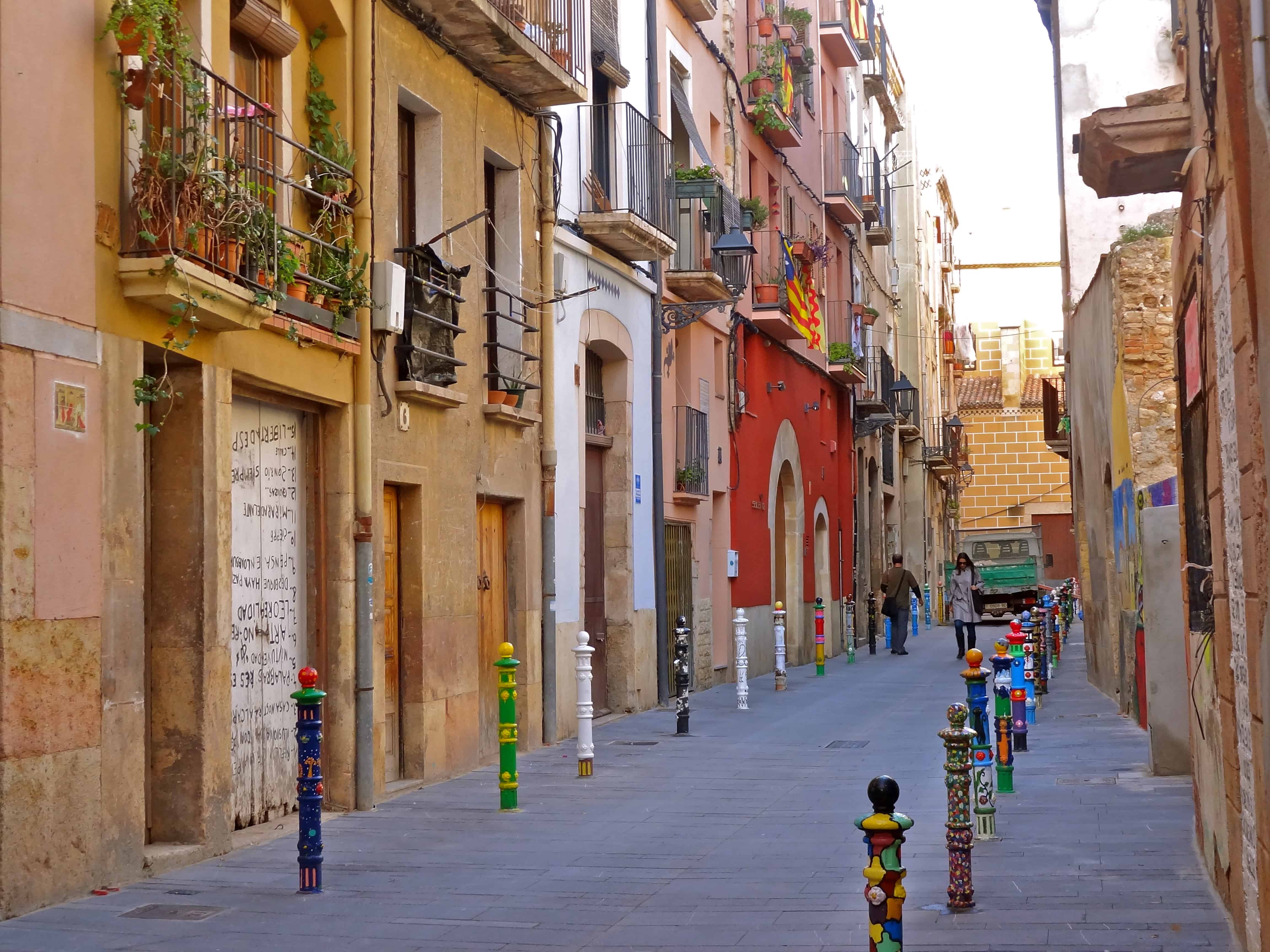
After a week of trotting in Barcelona, Tarragona and Ibiza as a guest of Spain Tourism, my many pre-conceived, seemingly romanticized notions of Spain have evolved. It is true that my first week in Spain, as a press trip, has been sheltered in many ways; I haven’t had to choose my own accommodations, I haven’t lost myself in the cobbled streets of an old town to desperately seek directions in my half-baked Spanish, and I haven’t had to fret over menus to pick out vegetarian ingredients using Google translate. Yet, this one week has lent itself to showing me the country entirely from my own lens, without pouring over hours of online search. Just like I felt in Turkey, a week maybe too short to form these impressions, but I have another three weeks (this time completely on my own) to think otherwise.
1. Spain is not just about sun, sand and sea.
No perception of Spain is more common, or more misleading. After traversing along the Roman ruins of Tarragona, spending days wine tasting on the countryside of Falsat and Ibiza, visiting the Hippy market in San Carlos, hiking in the wilderness of Ibiza, and researching on the north and south of Spain for the extension of my trip, it is easy to conclude that while Spain has a stunning blue Mediterranean coastline, the country has much more to offer people like me who wouldn’t want to spend all their time sunbathing on the beach. To be honest, this is exactly the reason why I ditched Spain on my first trip to Europe, only to realize a year later that summer is indeed the best time to visit the lush green, mountainous north of Spain.
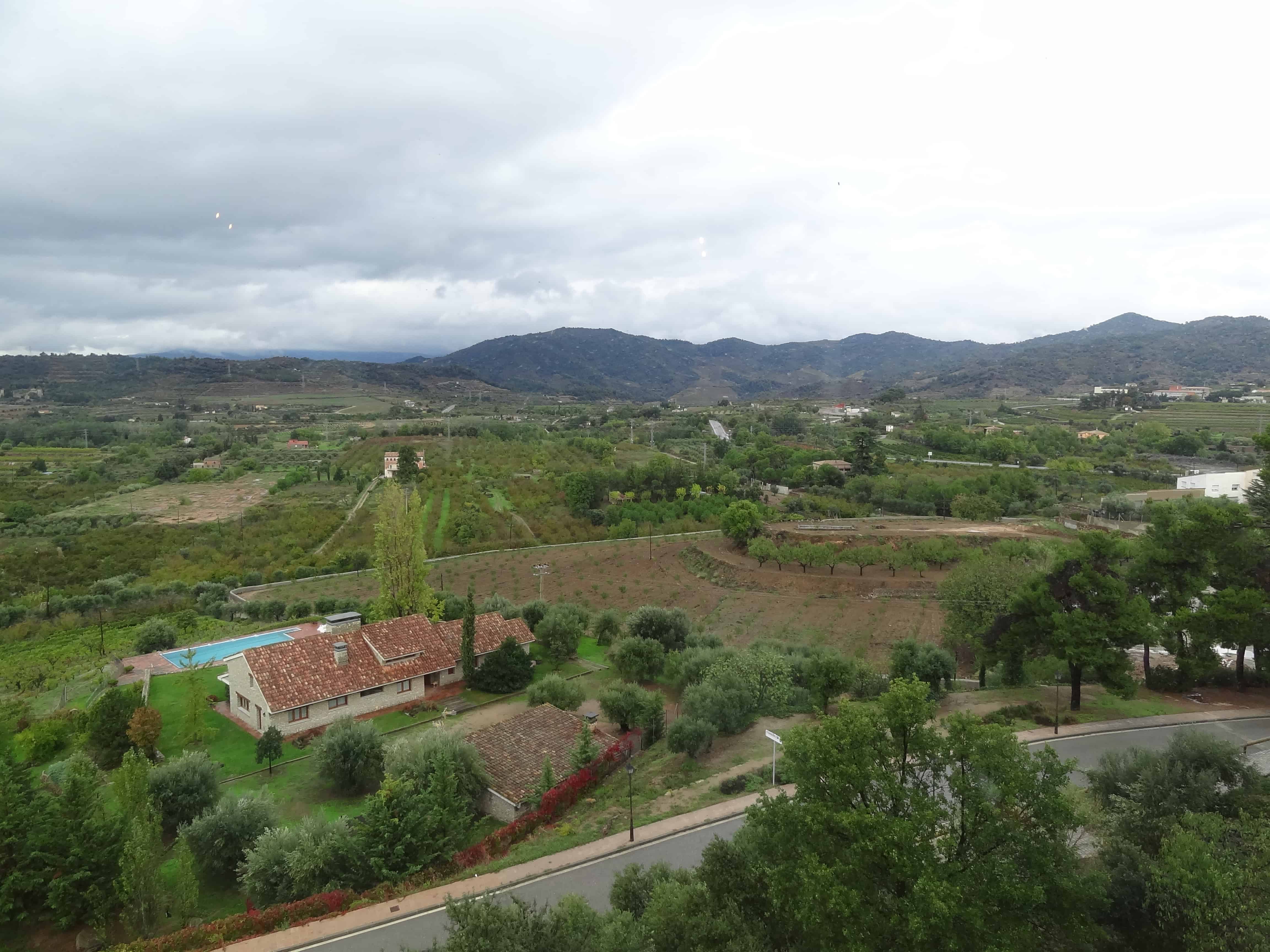
2. Vegetarian food is not that hard to find.
I have heard nightmarish stories of being vegetarian in Spain, and read that as per Lonely Planet’s guide to food in Spain, a vegetarian travelling in Spain is advised to carry ‘a small stash of vitamins and a big sense of humor’! While Spaniards are big (very big) on seafood, it isn’t impossible to find vegetarian food. So far, I’ve indulged in delicious preparations ranging from Uovo di bosco (mushrooms with eggs) and spinach cannelloni to the more traditional Arroz con verduras (rice with vegetables), Salmorejo (creamy combination of tomato, oil, garlic and bread) and the Spanish tortilla, and pleased my taste buds. Of course, I’ll reserve my final verdict for after I head on my own into the countryside.
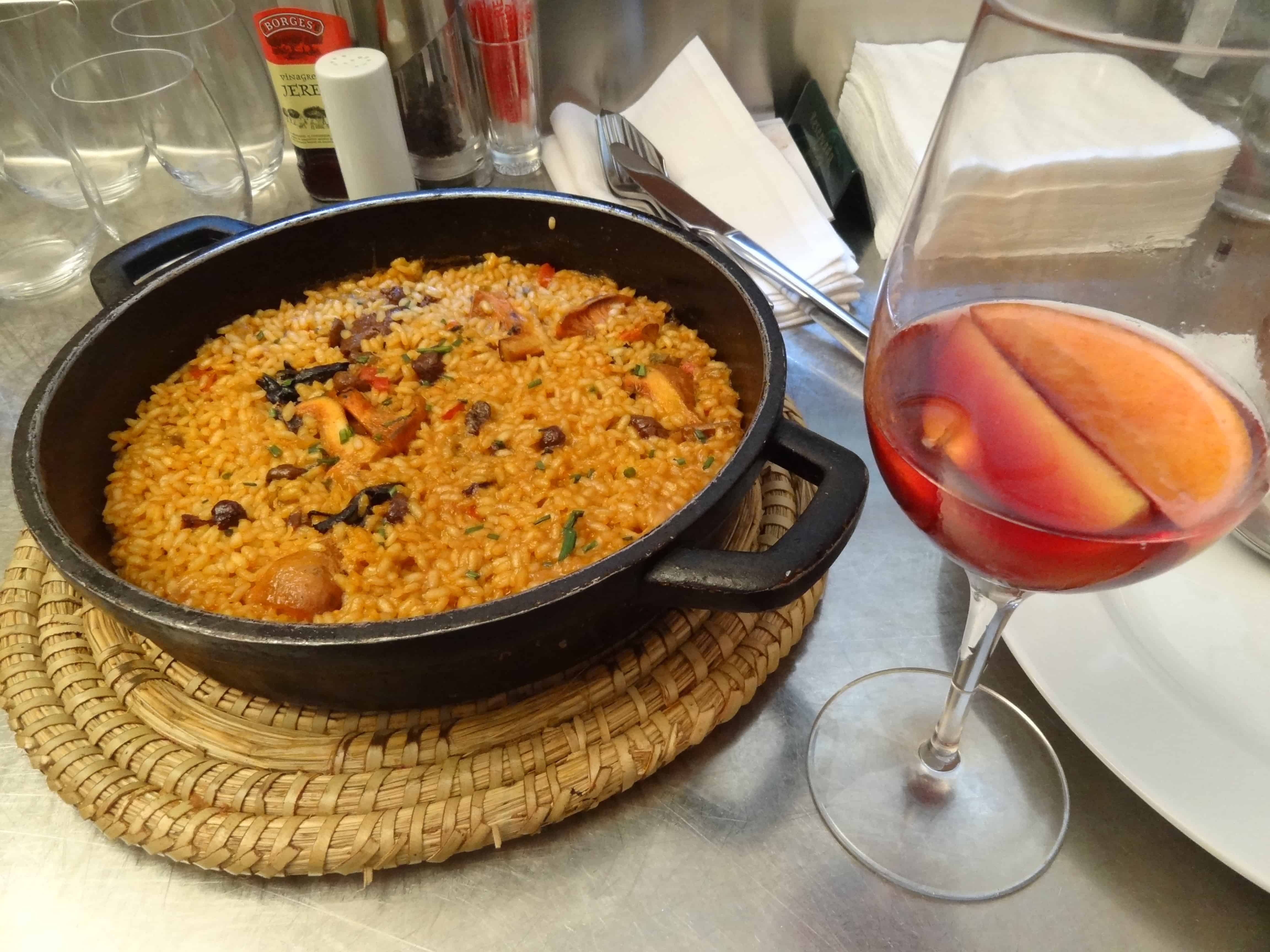
3. Tapas is overrated.
My romantic notion of tapas-hopping in Spain has sort of been crushed. I’ve sampled three ‘tapas restaurants’ until now, and while I’ve found enough variety of vegetarian tapas, I’ve realized that it’s just a glorified way to describe appetizers. Irrespective of the country you are in, you are bound to have wine or other drinks with small snacks, and in some places these snacks might be offered complimentary, like aperitivo in Italy. Tapas is exactly like that. And tapas-hopping on an Indian appetite is almost impossible, since the portion of each type of tapas is fairly large. I will give tapas / tapas-hopping another try in Andalusia, the birthplace of Tapas, and see if it does anything for me there.
4. You don’t have to be a history buff to appreciate Spain’s heritage.
For a country perceived largely as sun, sand and sea, Spain has a surprisingly rich and well-preserved heritage left behind by Romans, Phoenicians, Arabs and others. Thirteen of its cities are listed among the UNESCO World Heritage Cities of Spain, including Tarragona and Ibiza, and luckily for a non-history buff like me, you don’t have to pour over books and aisles of museums to appreciate these cities. The Roman ruins of Tarragona for instance, have been converted into quaint houses, shops and cafes, that still have rustic medieval arches and walls within. Similarly, the old city of Ibiza is home to lovely little houses that keep the medieval decor on the outside but are modernly restored from the inside. Walking through the narrow lanes of these old towns, you can’t help but visualize the years of history they so beautifully preserve.
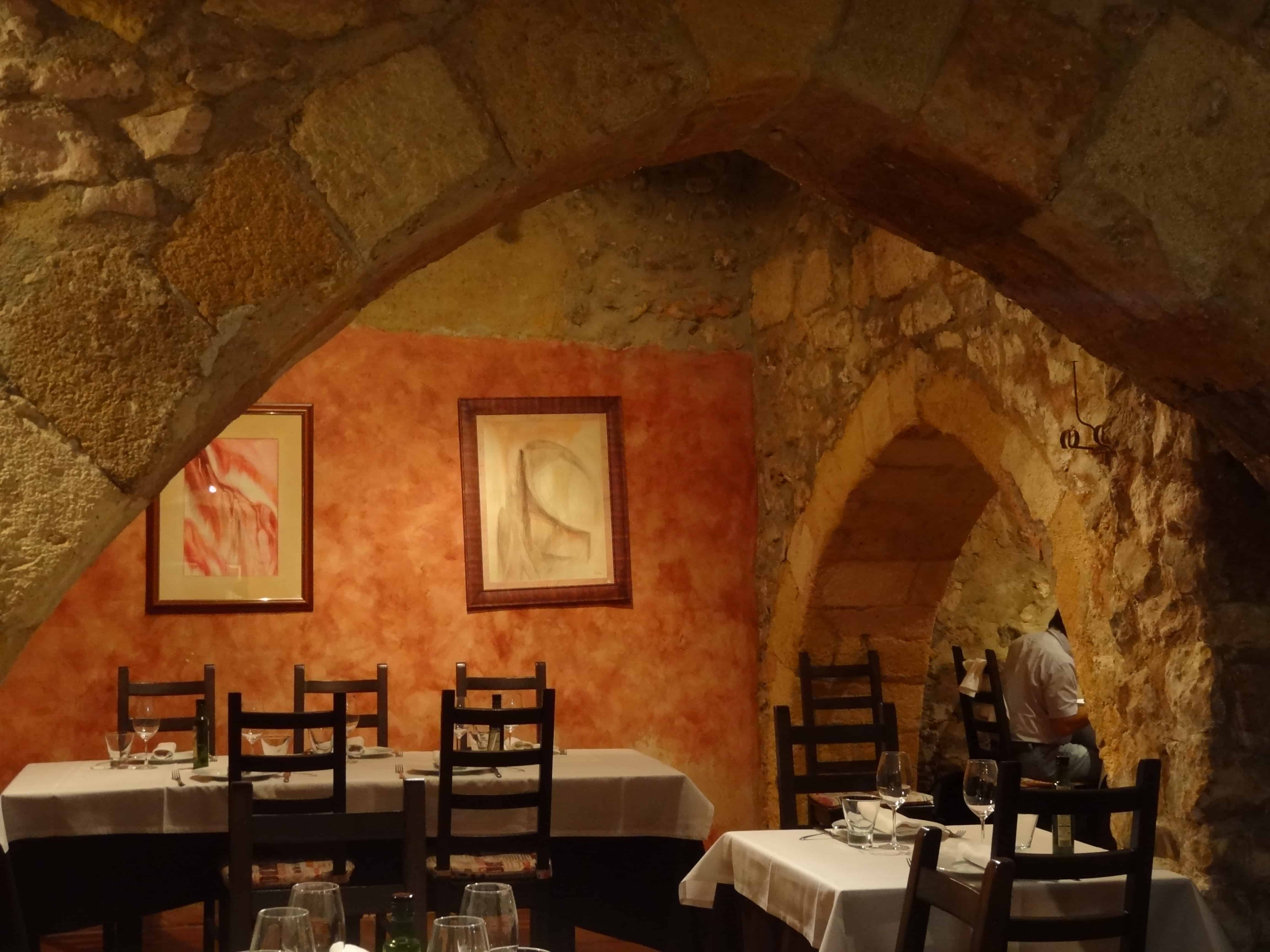
5. It is easy to survive without Spanish.
I remember being told that even Barcelona is hard to get around in without knowing Spanish. While I have tried to initiate conversations in my broken Spanish, I have more often than not resorted to asking, hablas ingles por favor, do you speak English please. The request has succeeded on most occasions, and unlike in France where you could be given grief for not speaking French, the people in Spain are much more welcoming about it. So no, I don’t think one would be completely lost not speaking Spanish in Spain, atleast not in the bigger towns.
6. The Spanish love their long lunches and siestas.
I personally never associated Spain with long lunches and afternoon siestas, the way the Italians are associated with it. In Spain, they say, sombre del mesa, board the table, and they take it quite literally. A meal is an important daily affair, and family members are literally invited to come on board the table for what might be a two or even three hour lunch or dinner. Even a simple home-cooked meal typically has four courses and wine, and no one is in a hurry to finish. Obviously, a long indulgent lunch is followed by an afternoon siesta, and in the smaller towns, the streets become completely deserted and the shops shut between 3 and 5 pm in the afternoon. A good life, this.

===
Have you travelled in Spain? What were your impressions of the country and its people?
===
For live travel stories, photos & tips from Spain, join The Shooting Star on Facebook & Twitter.
===
Hi there! I’m Shivya, and I started this travel blog back in 2011, when travel wasn’t trendy, Instagram didn’t exist and AI wasn’t a thing (simpler times, I know!). I write about slow, meaningful and conscious travel – that is good for us, the places we visit, the people we meet along the way, and the planet at large. Settle down, grab a cup of tea, and read stories that remind you of the essence of travel. I’m so glad you found me!


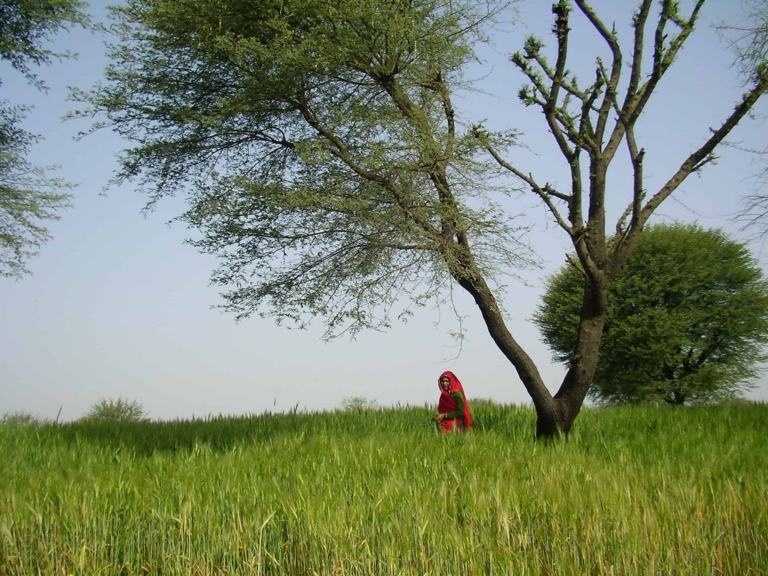
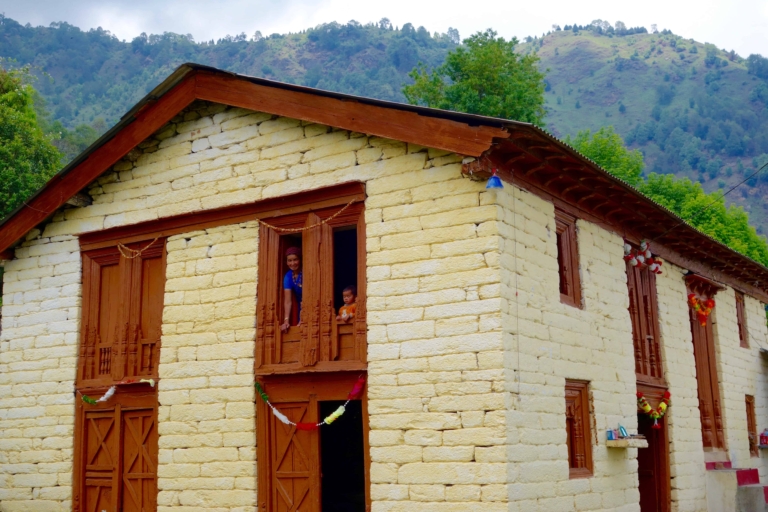


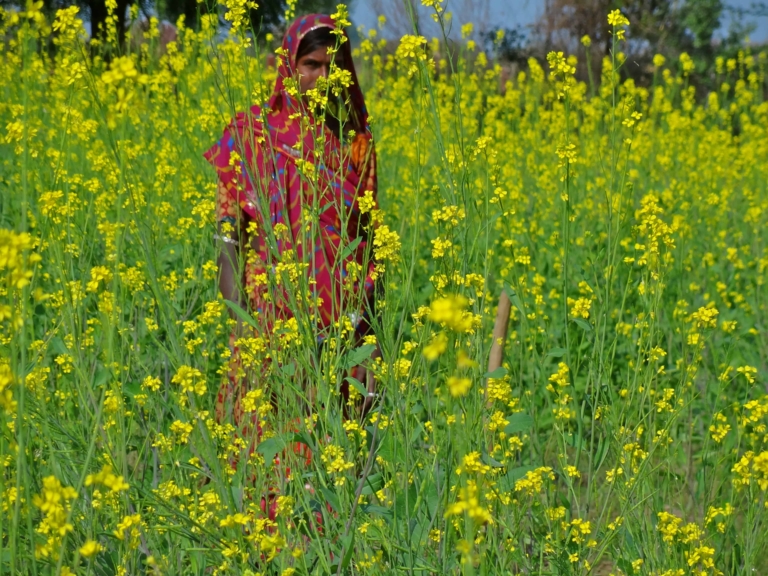

I don’t get tapas either. I think it is an excuse to serve scraps. I got completely sick of potatoes, chorizo and eggs.
And I don’t eat chorizo. So yes, think I’ll be sick of the potatoes and eggs soon. But I have a list of alternative vegetarian dishes that I’m trying my luck with wherever I go!
another nice read! quite a few myths broken there! I have always loved the sound of the word tapas – very exotic! But as u said there’s no hiding the fact that its basically starters.
Me too. I’m in the south of Spain now, and going to give tapas another shot, because this is where it was born. Hope it does something more for me 😉
Traditionally, tapas are a kind of cheap food. Youngsters and studens (without “lots of money”) used to go to take lunch or dinner based on tapas, because they were cheap, and not very bad for the money you pay. That’s why they were so popular. When I was an teenager, many years ago, my friends and me meet every saturday night to dinner together, and all we could pay were sandwichers or tapas.
Then, it came the “new cuisine” and did their new interpretation of this traditional food, putting it in fashion. That’s why is now so “popular”. But, still, usually adult people don’t go to a restaurant to eat tapas (unless they have not other options).
I really enjoyed Spain, though I haven’t been back since 2003. Agree with you on the tapas – whereas we make meals out of it in other countries, there it’s really just a bar snack. The bar-hopping culture that goes along with it is nice though, especially in Madrid.
I’m loving Spain as much, and most of these impressions have changed by now! I’ve accepted that tapas is not for me, not as a vegetarian anyway. I love the quaint bars, the bar hopping, the cafe life; haven’t been to Madrid, but all along the southern countryside 🙂
Of all places, never knew tapas are over-rated in Spain 😉 Have fun!
Haha. Just one of those things that I can’t find romantic / exotic as much as I’d like to!
I haven’t been to Spain yet but hopefully heading there next year. Nice to know they are forgiving if your Spanish is bad, or you don’t know any like me, although I always make an effot to learn a few words when I travel. I found the same in Italy, well Rome specifically. Everyone spoke English, also seemed pleased when I spoke Italian. They appreciated that I tried.
I must confess some of those first impressions have changed. They don’t judge if you don’t speak Spanish, but atleast outside of Barcelona, it’s hard to get by with English. I’d recommend doing a crash course / picking up some basic directional / food etc phrases to find your way around 🙂 I’m yet to go to Rome, but loved the parts of Italy I did go to, and how full of life people are! I’m sure you’ll love Spain too. Let me know if you need any recommendations; I found some lovely small towns in the south.
Hey ..Nice Info!! Very lucidly written !!:)
So..we know Tapas is actually over rated in there…!!
The eloquently preserved history seems alluring for a visit !!
Siestas in Spain are so damn good! 😀 Just imagine it being the rule, not awkward to just take naps, rest or hang out with friends everyday in midday and then continue working again.
Hello,
Planning for a solo trip to Spain for a week. I am 24 years old and want to have fun and exploring multiple facets of the country as much as possible.Could you please help regarding which part of year would be best and like about planning the budget 🙂
Every region in Spain has its own version of tapas. My favorite tapas are those in San Sebastian, Santander and in Madrid.I miss Spain so bad.